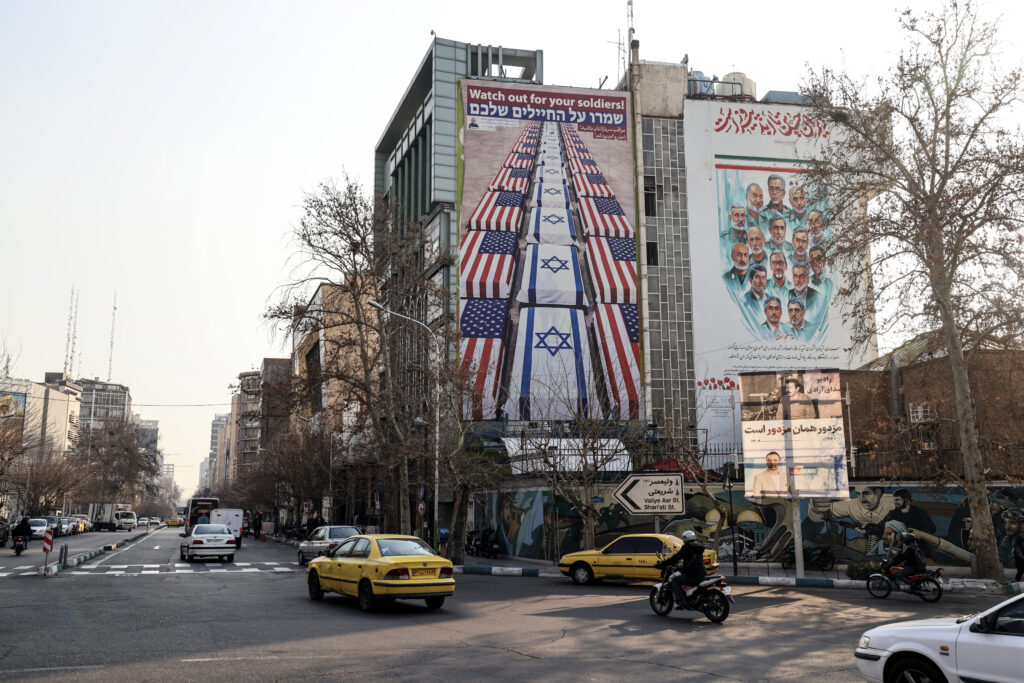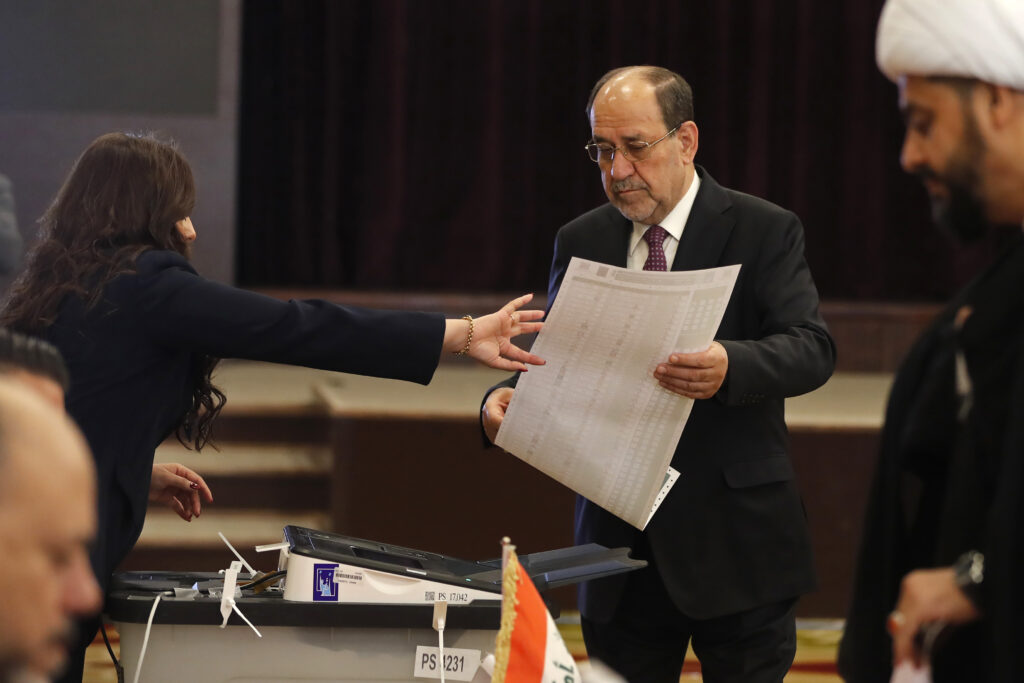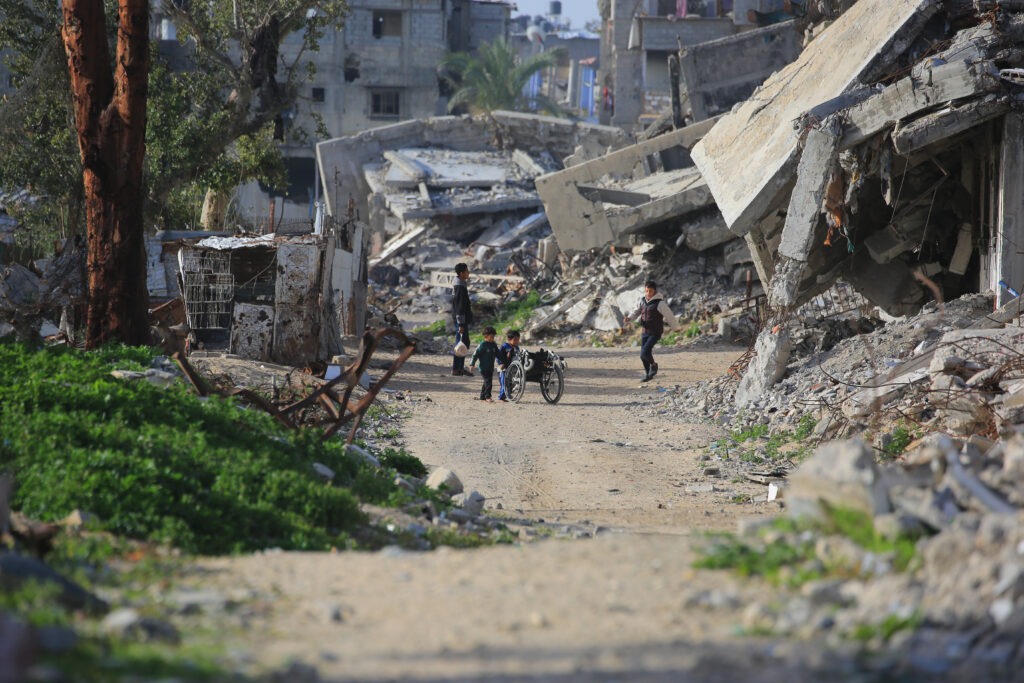AFP Asia Business
Iran warns against ‘instability’ after US strike group arrives
Iran’s president on Tuesday warned US “threats” against the Islamic republic would only cause instability, as a US naval strike group led by an aircraft carrier took up position in Middle Eastern waters. Washington has not ruled out military intervention against Tehran over its crackdown on protests — which rights groups say left thousands of people dead — and President Donald Trump has dispatched the USS Abraham Lincoln to the area “just in case”. Iranian President Masoud Pezeshkian hit out at US “threats” in a call with Saudi Crown Prince Mohammed bin Salman, saying they were “aimed at disrupting the security of the region and will achieve nothing other than instability”. The US also maintains several bases in the Middle East, prompting a Revolutionary Guards commander to issue a warning to Iran’s neighbours on Tuesday.”Neighbouring countries are our friends, but if their soil, sky, or waters are used against Iran, they will be considered hostile,” Mohammad Akbarzadeh, political deputy of the IRGC naval forces, was quoted as saying by the Fars news agency. Saudi Arabia’s foreign ministry said the crown prince had promised Pezeshkian that Riyadh “will not allow its airspace or its territory to be used for any military actions” against Iran.Since Iran launched its crackdown on protests earlier this month, accompanied by a blanket internet blackout, Trump has given mixed signals on intervention, which some opponents of the clerical leadership see as the only way to bring about change.”We have a big armada next to Iran. Bigger than Venezuela,” Trump told the Axios news site on Monday, weeks after the US military captured the Latin American nation’s president, Nicolas Maduro.But he added: “They want to make a deal. I know so. They called on numerous occasions. They want to talk.”Tehran has previously said a channel of communication is open between Foreign Minister Abbas Araghchi and US envoy Steve Witkoff, despite the lack of diplomatic relations between the two foes. Axios said Trump declined to discuss the options presented to him by his national security team, or which he prefers. Analysts say options include strikes on military facilities or targeted attacks against the leadership under supreme leader Ayatollah Ali Khamenei in a bid to bring down the system that has ruled Iran since the 1979 Islamic revolution that ousted the shah. – ‘Weakest point’ -The New York Times reported that Trump has received multiple US intelligence reports “indicating that the Iranian government’s position is weakening”, and that its hold on power “is at its weakest point” since the shah’s fall.US Senator Lindsey Graham told the paper he had spoken with Trump in recent days about Iran and that “the goal is to end the regime”.”They may stop killing them today, but if they’re in charge next month, they’ll kill them then,” he said of the authorities’ treatment of protesters.The US briefly joined Israel’s 12-day war against Iran in June with strikes on nuclear sites.Israeli Prime Minister Benjamin Netanyahu said Tuesday that “Trump will decide what he decides; the State of Israel will decide what it decides”.But, he added, if Iran attacked Israel, “we will respond with a force that Iran has never seen”.Iranian officials have in recent days appeared wary of pouring oil on the fire. But the Hamshahri conservative newspaper on Tuesday quoted Revolutionary Guards spokesman Mohammad Ali Naini as saying that “if their aircraft carrier made a mistake and entered Iranian territorial waters, it would be targeted” — only to later retract the report and apologise to Naini. The conservative Javan newspaper said Iran was “ready for a major response” and would seize the strategic Strait of Hormuz, a key transit hub for energy supplies.Meanwhile, an anti-US billboard has appeared in Tehran that appears to show an American aircraft carrier being destroyed.- ‘Mass arrests, intimidation’ -Rights groups have described the crackdown as the deadliest ever against protests in Iran, and warn that compiling tolls has been complicated by an almost three-week internet blackout they say is aimed at masking the extent of the repression. Monitor Netblocks on Tuesday reported intermittent connectivity but warned internet access remained “heavily filtered on a whitelist basis” and users would still need workarounds. In an updated toll, the US-based Human Rights Activists News Agency (HRANA) said it had confirmed that 6,126 people had been killed, including 5,777 protesters, 86 minors, 214 members of the security forces and 49 bystanders.But the group, which has an extensive network of sources inside Iran and has tracked the protests on a daily basis since they began, added it was still investigating another 17,091 possible fatalities. At least 41,880 people have been arrested, it said.”Security agencies continue to pursue an approach centred on mass arrests, intimidation, and control of the narrative,” HRANA said. Over the weekend, Persian-language TV channel Iran International, which is based outside Iran, said more than 36,500 Iranians were killed by security forces between January 8 and 9, citing reports, documents and sources. It was not immediately possible to verify the report.
Trump warns US to end support for Iraq if Maliki returns
President Donald Trump on Tuesday threatened to end all US support for Iraq if Nouri al-Maliki, a former prime minister with ties to Iran, returns to the post.Trump, in his latest blatant intervention in another country’s politics, said that Iraq would make a “very bad choice” with Maliki, who has been nominated as prime minister by the largest Shiite bloc.”Last time Maliki was in power, the Country descended into poverty and total chaos. That should not be allowed to happen again,” Trump wrote on his Truth Social platform.”Because of his insane policies and ideologies, if elected, the United States of America will no longer help Iraq,” he said.”If we are not there to help, Iraq has ZERO chance of Success, Prosperity, or Freedom. MAKE IRAQ GREAT AGAIN!” he wrote, adopting his slogan at home.Maliki left power in 2014 following pressure from the United States, which blamed his nakedly sectarian Shiite agenda for giving rise to the Islamic State group of ultra-violent Sunni extremists.The United States wields key leverage over Iraq as its oil export revenue is largely held at the Federal Reserve Bank in New York, in an arrangement reached after the 2003 US invasion that toppled Saddam Hussein.Oil sales account for around 90 percent of Iraqi government revenues.Trump’s statement came days after Secretary of State Marco Rubio voiced similar concerns in a telephone call with the incumbent prime minister, Mohammed Shia al-Sudani. The United States had also sent a letter to Iraqi politicians saying that Washington views Maliki negatively, political sources said.- Delay in parliament -By convention, a Shiite Muslim has been prime minister since the fall of Saddam, who ruthlessly repressed the Shiite majority in Iraq.On Saturday, the Coordination Framework, an alliance of Shiite parties with varying ties to Iran that holds a parliamentary majority, endorsed Maliki.Normally he would then be nominated by the president, who holds a largely ceremonial role.Iraq’s parliament was set to elect a president on Tuesday but the vote was abruptly delayed.The presidency traditionally goes to a Kurd, and the official INA press agency said that the two main Kurdish parties had requested more time to come to a consensus on a candidate.Before Trump’s open call to dump Maliki, an Iraqi political source said that the Coordination Framework was set on moving forward with the nomination, believing that Maliki could eventually allay Washington’s concerns.A pro-Iranian government in Iraq would be a rare boon for Tehran’s Shiite clerical state after it suffered major setbacks at home and in the region.The Islamic republic has killed thousands of Iranians since mass protests erupted in late December in one of the largest threats to the clerics’ rule since the 1979 Islamic revolution.Since suffering the October 7, 2023 attacks, Israel has hit Iran both with strikes inside the country and heavy blows against Tehran’s Lebanese ally Hezbollah, while Iran lost its main Arab ally with the fall of Bashar al-Assad in Syria.The United States has enjoyed smooth relations with Sudani, who has worked quietly to prevent violence by Iraqi Shiite armed groups tied to Iran.Sudani has also cooperated with the United States to bring into Iraq a caravan of Islamic State prisoners from Syria, where the army recently moved on Kurdish fighters who had run the detention camps.Even during Sudani’s term, Maliki annoyed the then US administration of Joe Biden by helping push through a harsh anti-LGBTQ law.The United States has long intervened in other countries, but Trump has broken precedent by meddling openly.Trump has backed fellow right-wing candidates in elections in Poland, Romania and Honduras, where the Trump-backed winner was inaugurated Tuesday. Trump earlier this month ordered a deadly military operation into Venezuela that removed leftist president Nicolas Maduro, a longtime US nemesis.burs-sct/dw
Gazans long for reopening of ‘lifeline’ Rafah crossing
With Gaza’s vital Rafah border crossing expected to soon reopen, residents of the war-shattered territory are hoping to reunite with family members, or are looking to leave themselves.The Rafah crossing between Gaza and Egypt is the Palestinian territory’s only gateway to the outside world that does not lead to Israel and is a key entry point for both people and goods.It has been closed since Israeli forces took control of it in May 2024, except for a limited reopening in early 2025, and other bids to reopen failed to materialise.Following a US-brokered ceasefire that took effect in October, Rafah is expected to reopen for pedestrians, after visiting US envoys reportedly pressed Israeli officials to reopen the crossing.”Opening the Rafah crossing means opening the door to life for me. I haven’t seen my wife and children for two years since they left at the beginning of the war and I was prevented from travelling,” said 48-year-old Mahmud al-Natour, who hails from Gaza City.”My children are growing up far away from me, and the years are passing by as if we are cut off from the world and life itself,” he told AFP.Randa Samih, 48, also called the crossing “the lifeline of Gaza,” but is worried about whether she would be able to leave.She had applied for an exit permit to get treatment for her injured back, which she fears might not be serious enough to be allowed out.”There are tens of thousands of injuries in Gaza, most of them more serious than mine,” she said. “We’ll die or our health will decline before we get to travel.”- ‘Limited reopening’ -Gaza, a tiny territory surrounded by Israel, Egypt and the Mediterranean Sea, has been under Israeli blockade even before Hamas’s attack sparked the war.Palestinian militants took 251 people hostage on October 7, 2023, in an attack that killed 1,221 others, most of them civilians.Israel’s retaliatory offensive has killed at least 71,662 Palestinians, according to figures from the health ministry in Hamas-run Gaza that the United Nations considers reliable. The ministry does not say how many of the dead were fighters, though its data shows that more than half were women and children.Ali Shaath heads the National Committee for the Administration of Gaza (NCAG), created as part of the ceasefire agreement. He announced last week that Rafah would reopen in both directions.Israel said it would only allow pedestrians to travel through the crossing as part of its “limited reopening” once it had recovered the remains of the last hostage, Ran Gvili.His remains were brought back to Israel later on Monday.A Palestinian official told AFP on condition of anonymity that “estimates indicate that the Rafah crossing could be opened in both directions by the end of this week or early next week”.A member of the NCAG told AFP that the technocratic committee would be responsible for sending lists of travellers’ names to the Israeli authorities for approval.Outward travel will intially be limited to patients, the injured, students with university admission and visas, and holders of Egyptian citizenship or other nationalities and residency permits, the source said. – ‘Burning with anticipation’ -Gharam al-Jamla, a displaced Palestinian living in a tent in southern Gaza, told AFP she counted on the crossing’s opening for her future.”My dreams lie beyond the Rafah crossing. I applied for several scholarships to study journalism in English at universities in Turkey. I received initial acceptance from two universities there,” the 18-year-old said.She added she would then want to return to Gaza “to be one of its voices to convey the truth to the world.”Gaza’s civil defence agency spokesman, Mahmud Bassal, appealed for the full reopening of Rafah to allow the entry of unlimited aid and equipment for reconstruction.”There are thousands of bodies under the rubble, including children, women and people with disabilities, which have not been recovered since the beginning of the war,” he said.The civil defence is a rescue force operating under Hamas authority.Mohammed Khaled, 18, said he wanted to move on from the war.”I’m burning with anticipation,” he told AFP.”I haven’t seen my mother and sisters for two years. My mother travelled for medical treatment, and they only allowed my sisters to accompany her.”Khaled said he also hoped to be able to travel to have surgery for a shrapnel injury sustained during the war.
Trump says Iran wants talks as US aircraft carrier deploys
A US naval strike force led by an aircraft carrier was in Middle Eastern waters on Tuesday as Iran vowed to hit back against any strike and President Donald Trump said he believed the Islamic republic still wanted talks.Washington has not ruled out new military intervention against Tehran over its crackdown on protests, which according to rights groups saw thousands of people killed within days.A strike group led by the USS Abraham Lincoln has now arrived in Middle Eastern waters, US Central Command said, without revealing its precise location.Since Iran earlier this month launched the crackdown on protests accompanied by a blanket internet blackout, Trump has given mixed signals on intervention which some opponents of the clerical leadership see as the only way to bring about change.”We have a big armada next to Iran. Bigger than Venezuela,” Trump told the Axios news site, weeks after US military action resulted in the capture of the Latin American nation’s president Nicolas Maduro.But he added: “They want to make a deal. I know so. They called on numerous occasions. They want to talk.”Axios said Trump declined to discuss the options presented to him by his national security team, or which one he prefers. Analysts say options include strikes on military facilities or targeted hits against the leadership under Ayatollah Ali Khamenei in a full-scale bid to bring down the system that has ruled Iran since the 1979 Islamic revolution that ousted the shah. – ‘Weakest point’ -The New York Times, meanwhile, reported that Trump has received multiple US intelligence reports “indicating that the Iranian government’s position is weakening” and signalling its hold on power “is at its weakest point” since the shah’s fall.US Senator Lindsey Graham told the paper he had spoken with Trump in recent days about Iran and that “the goal is to end the regime”.”They may stop killing them today, but if they’re in charge next month, they’ll kill them then,” he added.Iranian officials have over the last days appeared wary of pouring oil on the fire. Tehran has in the past said a channel of communication is open between Iranian Foreign Minister Abbas Araghchi and US envoy Steve Witkoff, despite the lack of diplomatic relations between the two foes. But the Hamshahri conservative newspaper on Tuesday quoted Revolutionary Guards spokesman Mohammad Ali Naini as saying that “if their aircraft carrier made a mistake and entered Iranian territorial waters, it would be targeted”.The conservative Javan newspaper said Iran was “ready for a major response” and would seize the strategic Strait of Hormuz, a key transit hub for energy supplies.Meanwhile, an anti-US billboard has appeared in Tehran that appears to show an American aircraft carrier being destroyed.- ‘Mass arrests, intimidation’ -Rights groups have described the crackdown as the deadliest ever against protests in Iran and warn compiling tolls has been complicated by an almost three-week internet blackout they say is aimed at masking the extent of the repression.The US-based Human Rights Activists News Agency (HRANA) said it had confirmed that 6,126 people had been killed, including 5,777 protesters, 86 minors, 214 members of the security forces and 49 bystanders.But the group, which has an extensive network of sources inside Iran and has tracked the protests on a daily basis since they began, added it was still investigating another 17,091 possible fatalities. At least 41,880 people have been arrested, it said.”Security agencies continue to pursue an approach centred on mass arrests, intimidation, and control of the narrative,” HRANA said. Activists have accused authorities of raiding hospitals to find injured protesters and then arresting them. The health ministry has said all people should present themselves at hospital without worry and not treat themselves at home.Over the weekend, Persian-language TV channel Iran International, which is based outside Iran, said more than 36,500 Iranians were killed by security forces between January 8 and 9, citing reports, documents and sources. It was not immediately possible to verify the report.




